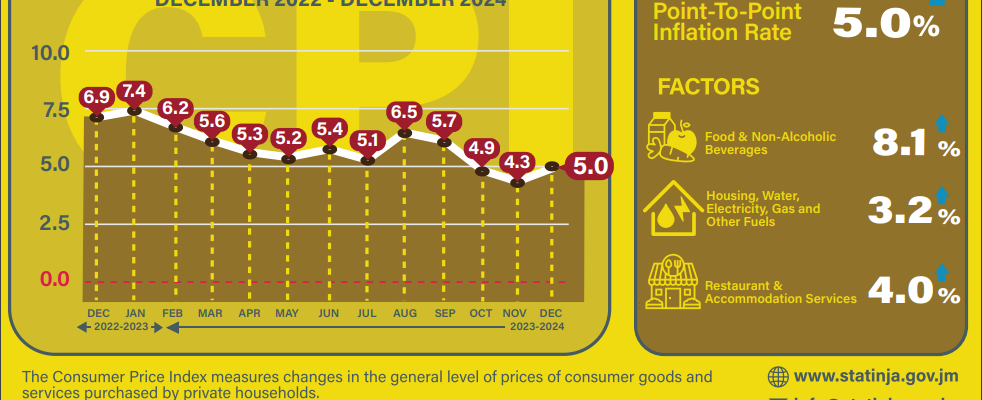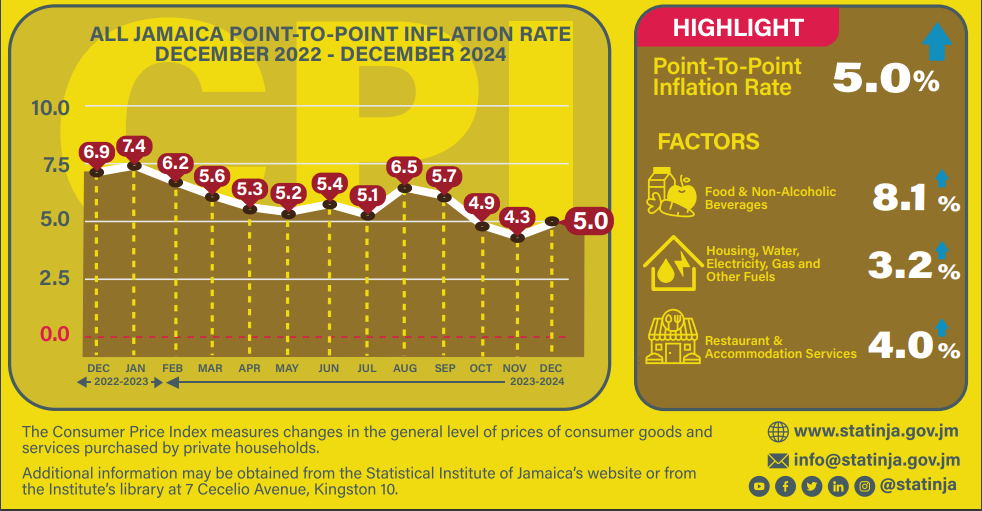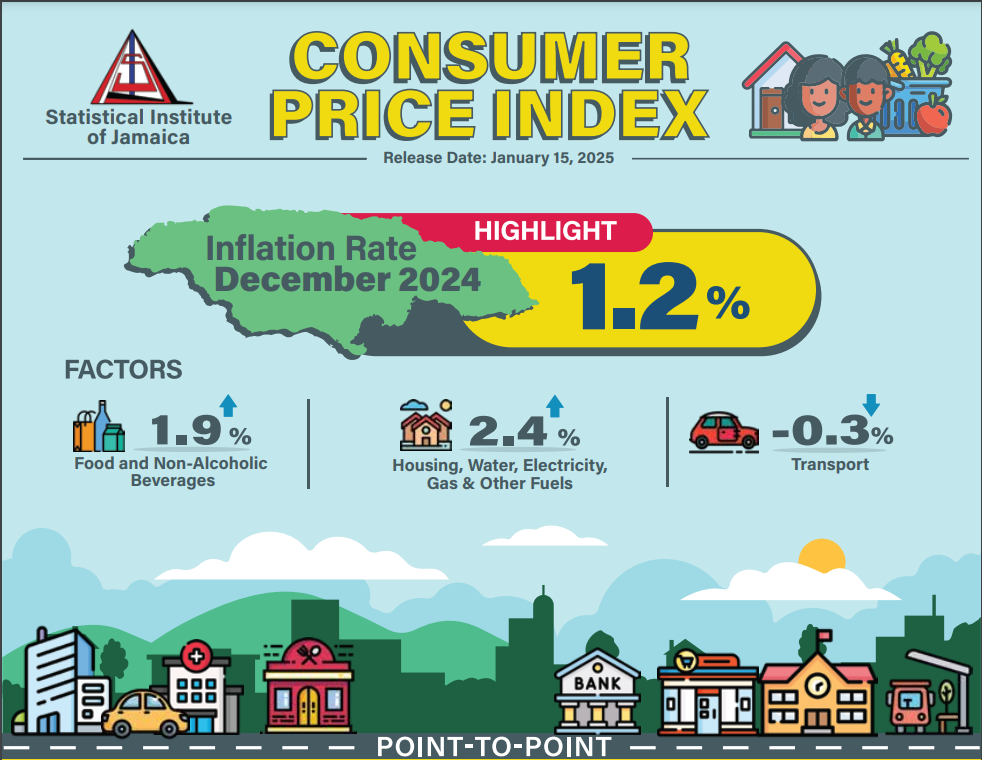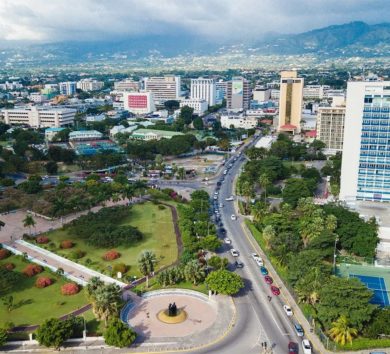

Annualised inflation for December 2024 remained within the Bank of Jamaica’s range of 4.0 per cent to six per cent despite the prices of food items, utilities, and restaurant and accommodations.
According to data from the Statistical Institute of Jamaica (STATIN), prices of goods and services, as captured in the All-Jamaica Consumer Price Index (CPI), rose by 5 per cent between December 2023 and December 2024. This was due to increases in the divisions: ‘Food and Non-Alcoholic Beverages’ (8.1 per cent), ‘Housing, Water, Electricity, Gas and Other Fuels’ (3.2 per cent), and ‘Restaurants and Accommodation Services’ (4.0 per cent).
The food and non-alcoholic beverages recorded the highest increase driven by a 22.3 per cent rise in the index of the ‘Fruits and Nuts’ class and a 17.2 per cent increase in the index of the class ‘Vegetables, tubers, plantains, cooking bananas and pulses’.
“Within the ‘Fruits and Nuts’ class, higher prices were recorded for ripe bananas, oranges, watermelon and dried coconuts, while the increase in the index for the ‘Vegetables, tubers, plantains, cooking bananas and pulses’ class resulted from higher prices for plantains, carrots, yellow yam, green bananas and tomatoes,” STATIN shared in a release.

Between November and December 2024, the CPI rose to 143.5, representing an increase of 1.2 per cent.
A 1.9 per cent increase in prices in the ‘Food and Non-Alcoholic Beverages’ division was the primary contributor to the uptick in monthly inflation.
“The increase in the division’s index was chiefly influenced by a 5.5 per cent upward movement in the index for the class ‘Vegetables, tubers, plantains, cooking bananas and pulses’. While higher prices were observed across all classes within the division, the increase was notable for items such as sweet pepper, sweet potato, tomato, cabbage and eggs,” according to STATIN.
The second-largest contributor to the overall monthly inflation rate was a 2.4 per cent increase in the index of the ‘Housing, Water, Electricity, Gas and Other Fuels’ division.

“This was primarily due to an increase in water and electricity rates. These increases were partially offset by a 0.3 per cent fall in the index of the ‘Transport’ division which was mainly attributable to lower petrol prices,” the agency added.






Comments